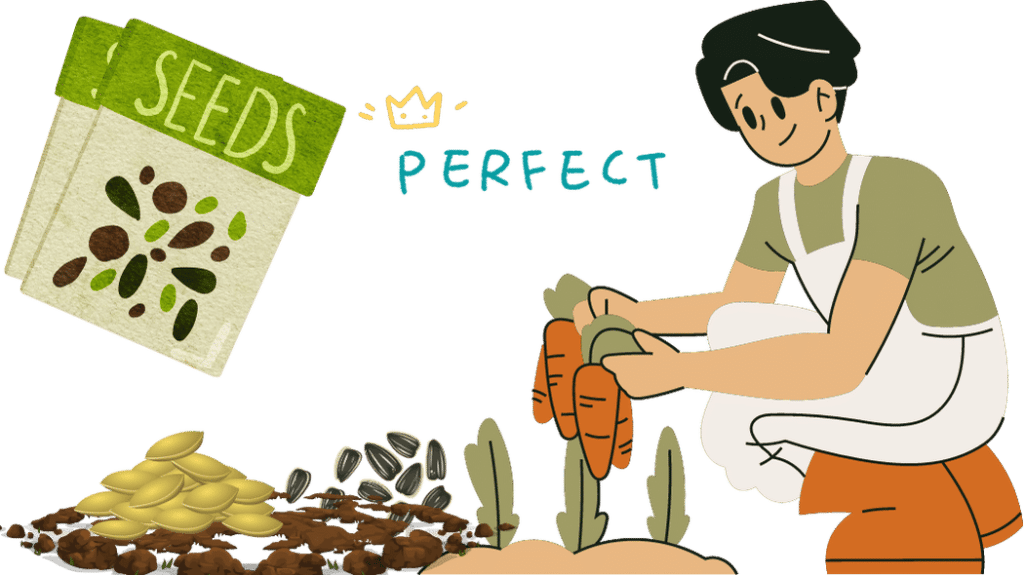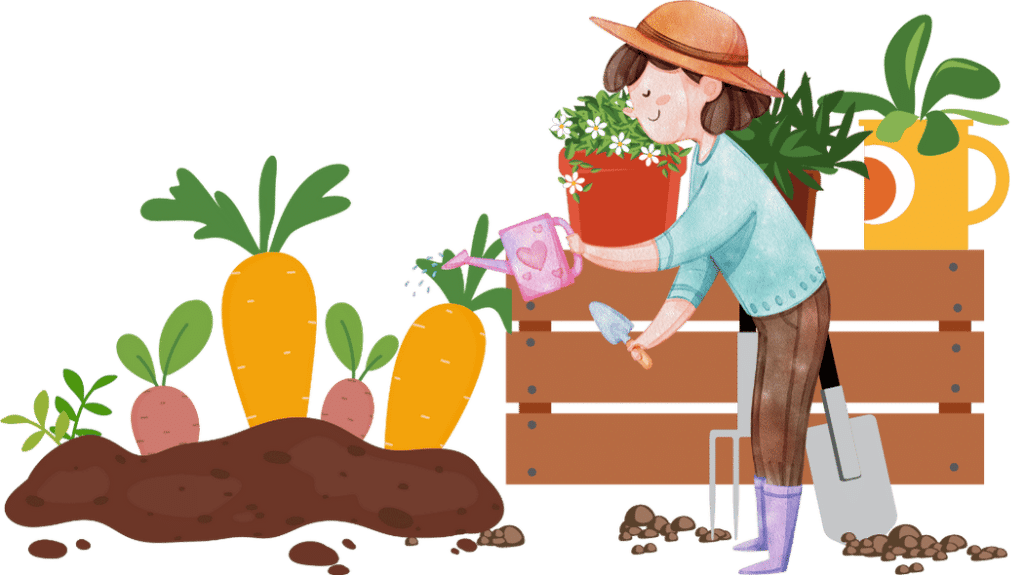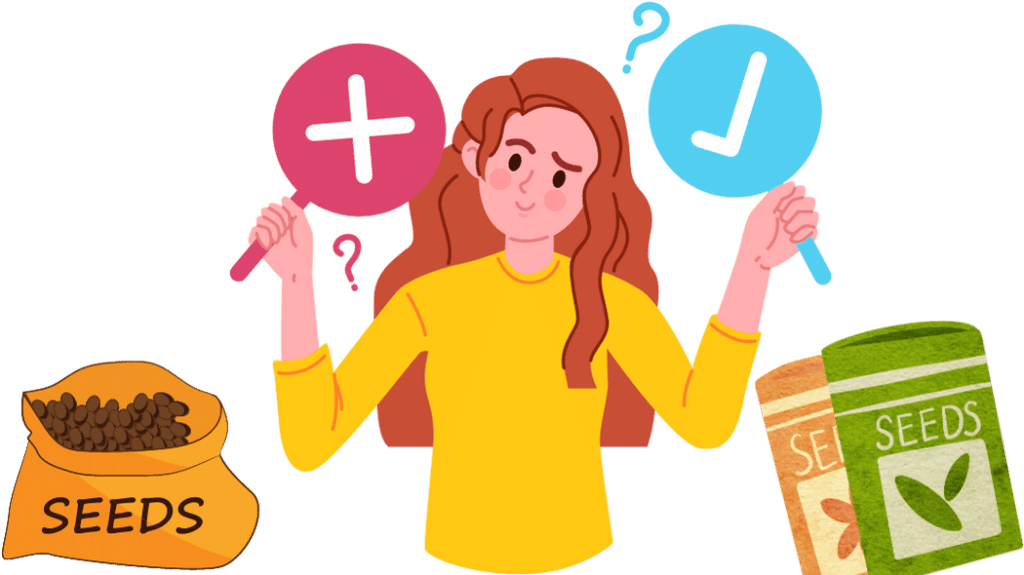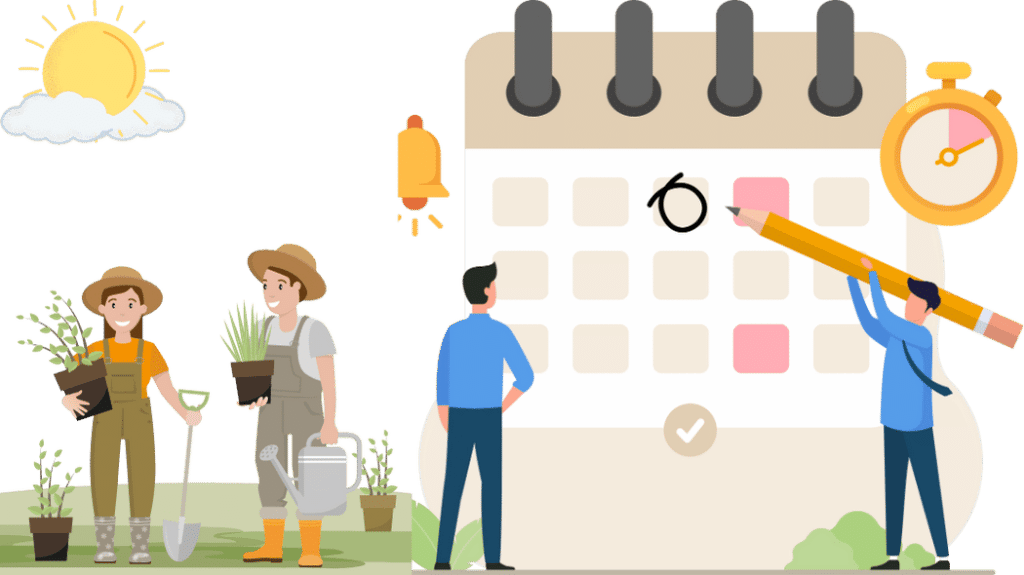Have you been eagerly planning your vegetable garden and are ready to take the next step after selecting the perfect location and planning? Then it’s time to turn your attention to choosing the perfect seeds for your vegetable garden. Whether you’re new to gardening or a seasoned pro, choosing the right seeds can make all the difference in the success of your garden. So, are you ready to take on this exciting task and grow the garden of your dreams? Let’s dive in!

Starting a vegetable garden is exciting, but selecting the perfect seeds can be overwhelming. With such wide varieties to choose from, it’s essential to consider factors such as climate, growing conditions, and personal preferences. In this article, we’ll guide you through the steps to help you choose the perfect seeds for your vegetable garden.
Step 1: Determine Your Climate Zone
The first step in selecting seeds is to determine your climate zone. This will help you decide which seeds will grow best in your area. You can use the USDA Plant Hardiness Zone Map to find your climate zone. Once you know your climate zone, you can select suitable seeds.

Step 2: Consider Growing Conditions
The next step is to consider the growing conditions of your garden. Take note of sunlight, soil type, and water availability. This will help you select seeds suitable for your garden’s needs. For example, choose seeds for plants that can grow in low light if you have a shady garden.

Step 3: Choose the Right Type of Seeds
There are two main types of seeds: heirloom and hybrid. Heirloom seeds are open-pollinated, meaning they will produce plants that are true to their parent plant. Hybrid seeds result from cross-pollination and are known for their consistent growth and yields. Consider the benefits and drawbacks of each type of seed and choose the one that best fits your needs.

Step 4: Determine Your Growing Schedule
Consider the length of your growing season when selecting seeds. Some plants, such as tomatoes and peppers, need a longer growing season, while others, like lettuce and spinach, can be planted and harvested in a shorter period. Make sure to choose seeds that fit within your growing schedule.

Step 5: Read the Packet Information
Before purchasing seeds, make sure to read the packet information. This will provide valuable information about the seed’s growth habit, yield, and maturity time. It will also give you an idea of how much space each plant will need and how much sun and water it will require.
Harvest the Benefits: Wrap-Up of Selecting the Right Seeds for Your Vegetable Garden
Selecting the perfect seeds for your vegetable garden can seem daunting, but with some research and careful consideration, you’ll be well on your way to growing a thriving garden. Keep these steps in mind as you navigate the seed selection process, and you’ll be sure to choose the perfect seeds for your garden.
“Harvest Your Success: Choose the Right Seeds for a Thriving Vegetable Garden Today!”

